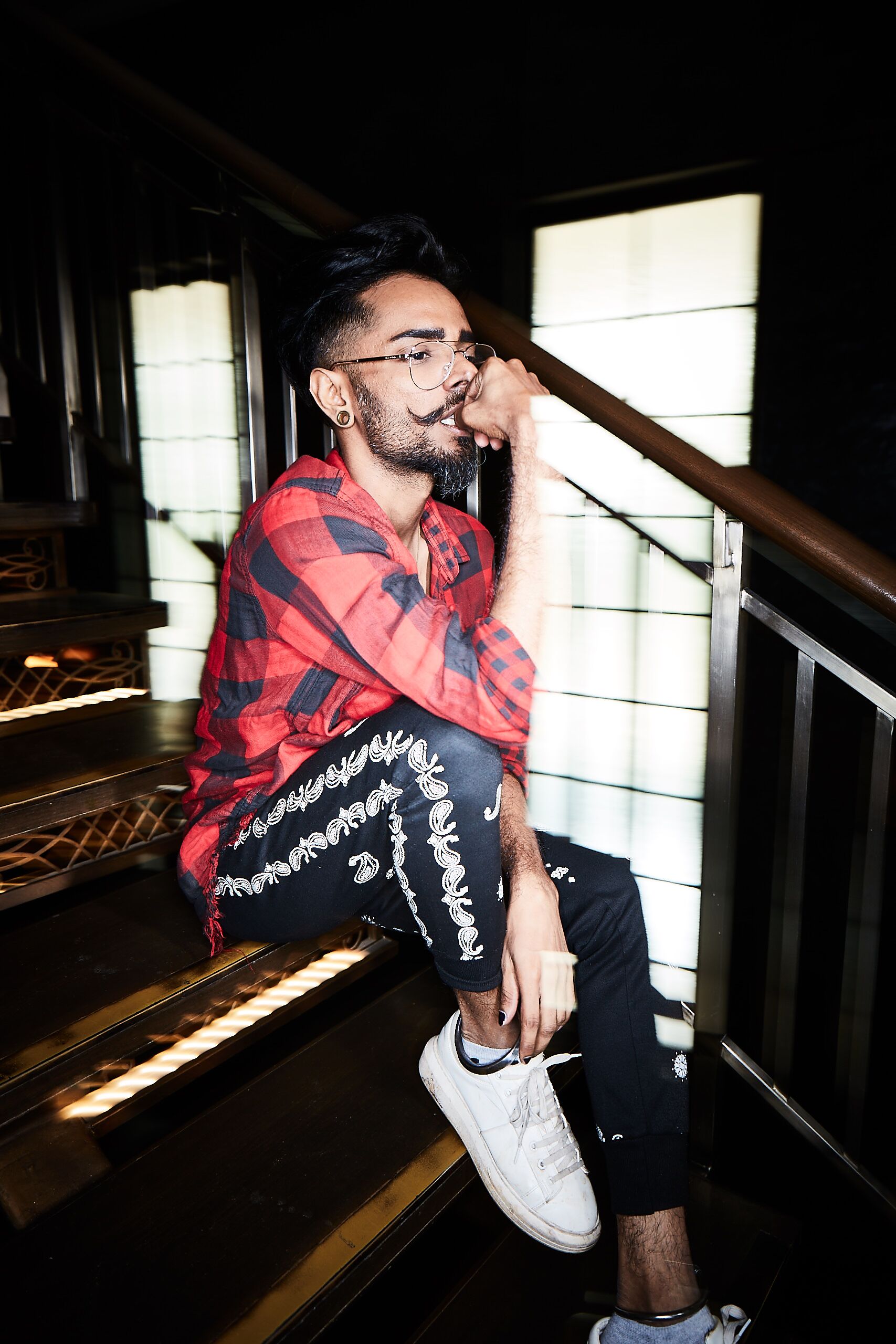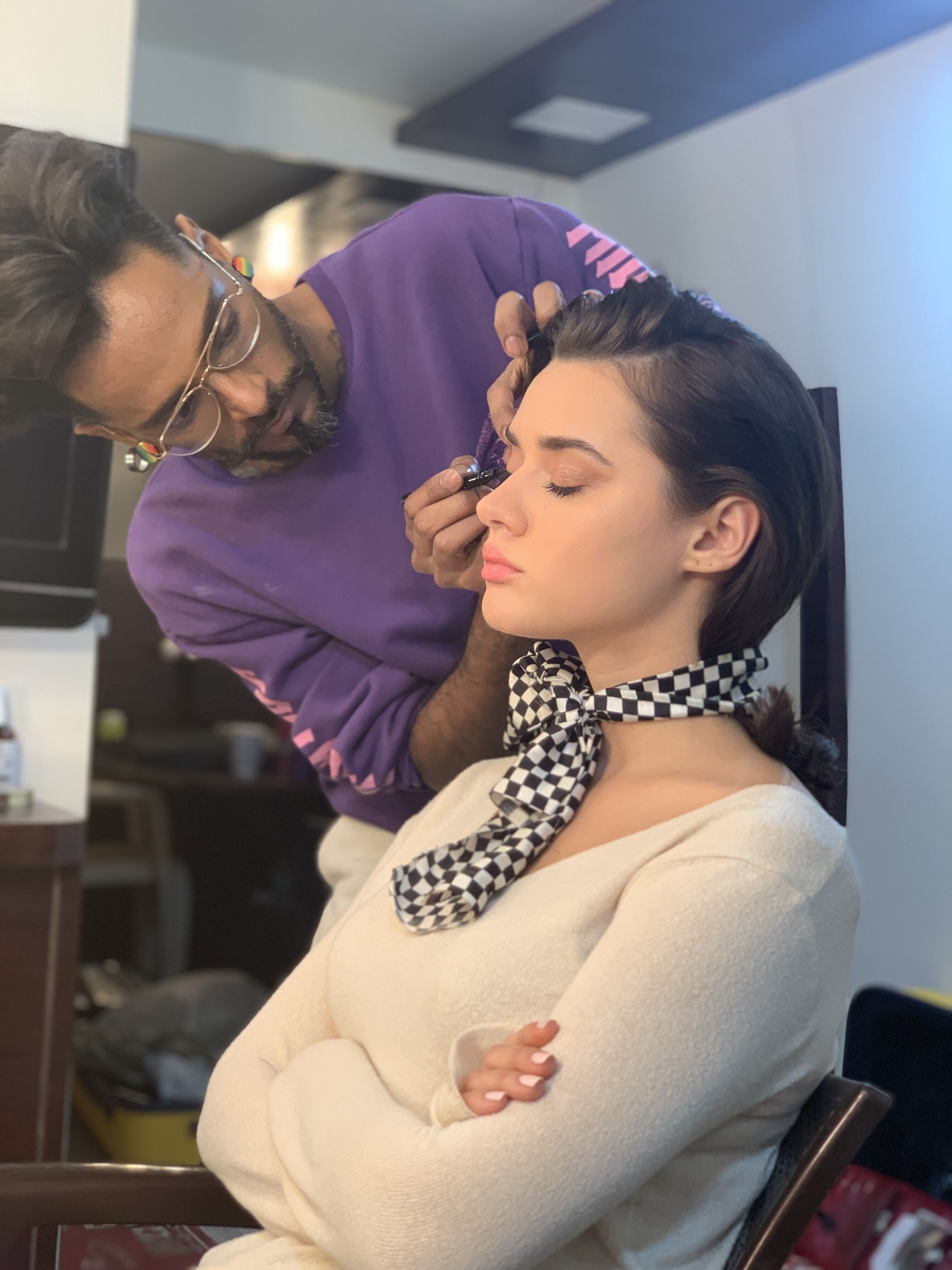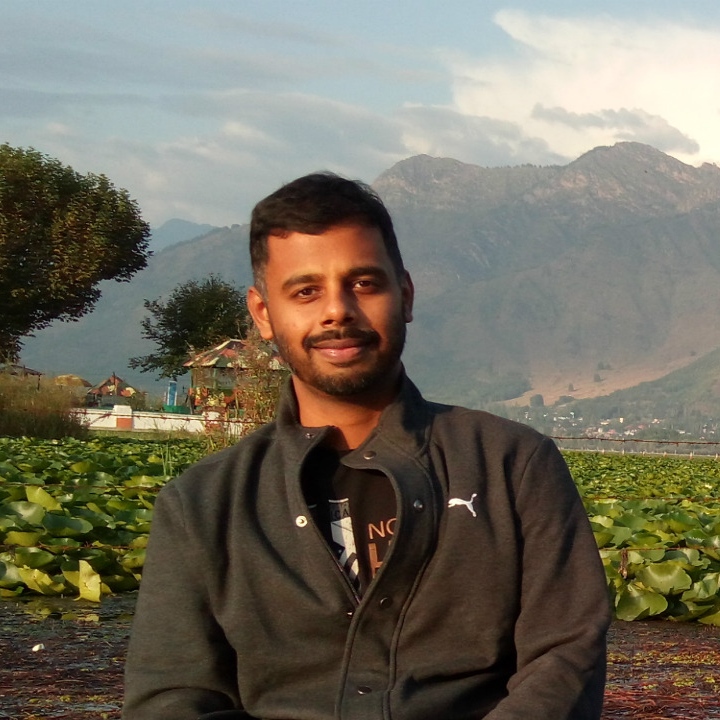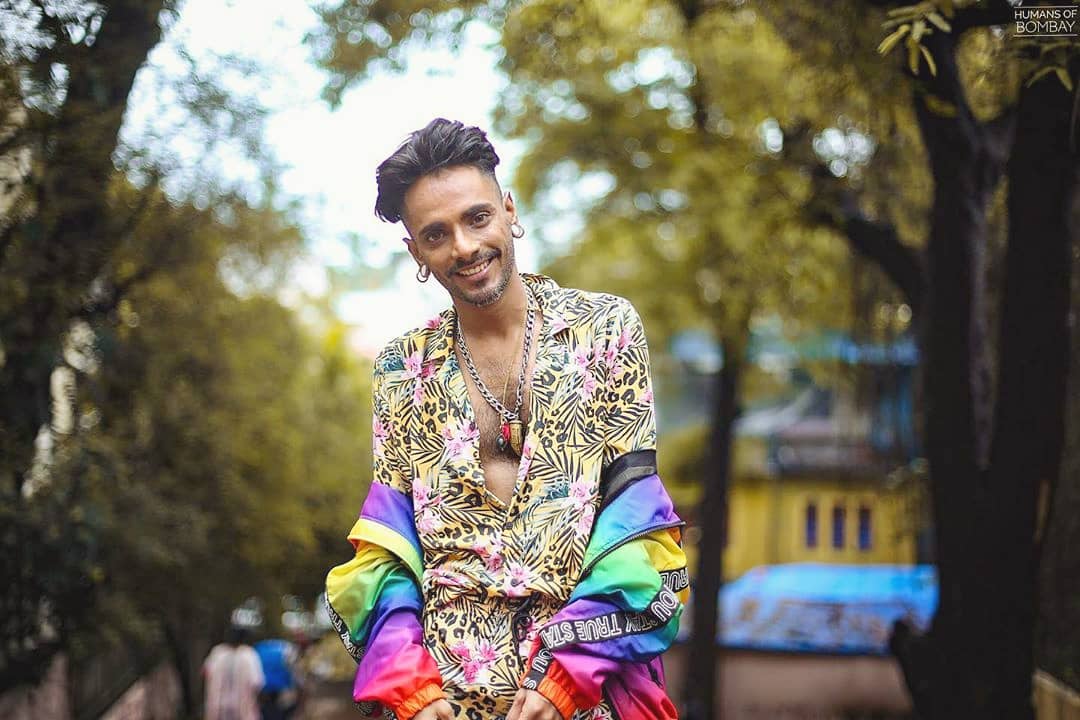Anyone who’s searched for makeup or hair tutorials online in India will be familiar with Elton J Fernandez. The flamboyant makeup and hair expert has styled the country’s top actors and models. He’s also a social media star with over 1.5 lakh followers across YouTube and Instagram. And he’s always been unabashedly clear about his decisions—whether it was about feeling like a misfit in the corporate world, or when coming out to his (aghast) family at age 23. In fact, these were the two things that affected his career trajectory the most. Fifteen years ago, he left his family home in Hyderabad, and shifted to Mumbai where, after a series of setbacks as well as illuminating insights into his work, he finally made it to the big time. Elton shares his amazing story with Thrive Global India.
Thrive Global India: Were you drawn to any particular career field growing up?
Elton J Fernandez: My family never really put pressure on me to get good grades, but when it came to creative competitions, I was expected to perform well. In fact, I scored 48% in my Standard 10 exams. My father was disappointed with my marks, but he was okay with it.
Growing up, one of my dreams was to be a singer and songwriter. When I was 18 or 19, I auditioned for various competitions, including a music reality show organised by a Southern TV channel. But because of my Anglo accent and bad Hindi, I never made it far. Those experiences broke my morale and I eventually stopped singing, even at home.
TGI: After college, you went through a series of corporate desk jobs…
EJF: Yes, in college, my academic fortunes somehow turned around. I studies history, political science and English literature and got a distinction in every subject. By then I had started learning the basics of makeup and hair art from a friend in Hyderabad, Sachin Dakoji. That helped me get small makeup assignments for magazine shoots or corporate events where the ‘compensation’ would range from Rs.500 to even some half-used cosmetics at times (laughs).
Anyway, doing well in college was a big deal for me. It also landed me a series of jobs, first with HSBC as a telephone banker for UK clients, then a gaming company, and with Google’s Adwords team. I worked for about two years for each of these companies. And I got in trouble at all my jobs.
TGI: What went wrong?
EJF: I believe creative people are just not made for corporate jobs. But I came from a simple background, and to be honest, I didn’t think I deserved anything better at the time, so I persisted for six years before I quit corporate life altogether. I have to add that I have very few filters when I speak, and that created issues at the workplace. For example, at HSBC, I got angry with a racist caller from the UK. He complained to my boss, who asked me to apologise to the caller. I said ‘No way’, so that was the end of that job.
Around this time, I had also come out to my parents, and all hell had broken loose at home. My mom became a born-again faith healer to try and make me change my sexuality. I was feeling suffocated; there was so much darkness to deal with. I just had to get out, and having grown up in Mumbai, I knew moving back there would be the right step. So around 2005, I packed my bags and left Hyderabad.

TGI: Describe those early years in Mumbai—how did you fend for yourself?
EJF: I lived on my credit card for a while. Then I joined M.A.C Cosmetics, but was unceremoniously kicked out nine months later, after I stood up for a colleague there. In fact, I still remember the then head of Estee Lauder telling me on my last day at work: “You’re nothing. You’re a small fish and we’re an ocean.” I was asked to put my brush belt on the desk and leave the same day. It was very humiliating. I remember I walked out and called my then boyfriend and broke down. I had no idea how I’d be able to pay my rent without my salary. I was in shock.
TGI: Did you learn much about makeup at that job?
EJF: Not really; it was more of a sales position. So whatever I’d learnt up to that point was mainly what I’d taught myself before moving to Mumbai. But the job allowed me to interact with some well-known people who taught me a lot about integrity and work ethic. People like [photographer] Farrokh Chothia were not ‘soft and sweet’. They believed in tough love. They also taught you to be co-operative and not let ego interfere with your work. That’s why I have no trouble letting go of jobs or big names if needed. I also learnt to take negative feedback in my stride, even if I felt hurt by it. In 2010, at a shoot for Taj Hotels, I did make-up for [supermodel] Ujjwala Raut. Ujjwala had just come off a film, and in my experience most actresses wanted to look “pretty”, so that’s the effect I went for. When I was done, she took a look in the mirror and said “Oh my god. This is why I left this country”, and proceeded to wipe it all off. I felt really hurt by that. It took me months to digest that feedback, but I eventually took accepted it and learnt from the experience.
TGI: In 2011, you worked on your first movie, Onir’s I Am. Did that change things for you professionally?
EJF: That film was incredible. Onir was an online friend from the time I was in Hyderabad. He liked one particular shoot I had uploaded and said we should meet. I took up his offer and worked on some press shoots for him. But what was great was his out-and-proud homosexual mentorship. He made it his mission to help me, although he didn’t need to. He even fought with veteran actresses to try me out instead of their regular makeup or hair artistes. And he gave me opening and closing credits for his movie, I Am. When you give others that kind of respect and dignity, you leave a legacy that’s about more than just your work—it’s about the people you leave behind.

TGI: Has being a member of the LGBTQ+ community mattered in your career?
EJF: Yes! I say to my family even today, that I am not successful despite being gay, I am successful because of it. I strongly believe that all humans have a need to express love and sexual desire. And if those needs are not met, you cannot reach fruition. You must celebrate your desire, not hide it. It has certainly made me a better artist.
TGI: Is there anything you’d go back and change if you could?
EJF: I’d tell myself to be patient and grow a thicker skin. I would also try and get more digital exposure. Seven years ago, I started my YouTube channel because I enjoyed teaching my craft, but I had no idea then that videos could be monetised. It took me three years to develop the channel and start making money. Companies started sending me products, I got a TV show, and was able to work with brands like Maybelline and Wella. But it’s also exhausting, because you’re always under scrutiny.
TGI: Having coming this far, what are your goals?
EJF: My parents taught me that every year, there should be some growth in your life, and that’s something I also firmly believe in. For me, 2019 was about a change in how I approach my work. For all these years I was ‘showing off’. It was about how fast I could work. But now, I am taking my time, learning new artistic techniques, bonding with models, and generally honing my craft. That’s my goal for the future: to keep learning from others, and to enjoy my work more.
Want to share your story of how you thrive? Write to us at [email protected]


